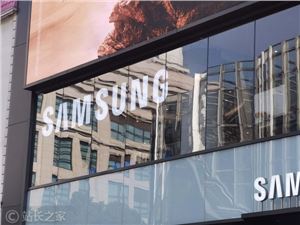The boundary between technology and fashion is being quietly broken by a pair of glasses. Samsung has recently officially announced its AI glasses strategy, declaring that it will collaborate with Google as well as two eyewear brands, Gentle Monster and Warby Parker, to create a new generation of smart wearable devices. This unnamed glasses will be based on the Android XR system, deeply integrating Google's latest Gemini AI model, aiming not only to improve interaction efficiency but also to redefine the way people connect with the digital world.
According to Samsung's roadmap, its AI glasses will be launched in two stages. The first product is expected to be released in 2026, focusing on smart voice assistant features. Although it will not have a display, it will already provide real-time information support to users through voice and environmental perception. The real technological leap is reserved for 2027—the second-generation product will be equipped with an augmented reality (AR) display, achieving a deep integration of information overlay, visual interaction, and immersive experiences, directly competing with companies like Meta in the field of spatial computing.
On the technical side, this glasses will integrate voice recognition, real-time image understanding, and context-aware capabilities, allowing users to perform tasks through natural language or eye movements. Whether it's navigating routes, identifying objects, or providing instant translation and social reminders, the local and cloud-based collaborative reasoning capabilities of the Gemini model will make the glasses a personal AI assistant. Furthermore, by leveraging the Android XR ecosystem, it can seamlessly connect with phones, tablets, and even future spatial computing devices, building a unified smart living entrance.
What is more interesting is Samsung's thinking about the product form. By collaborating with Gentle Monster and Warby Parker, Samsung clearly does not want to just create a "functional" tech product, but rather one that combines functionality and aesthetics as a daily accessory. This strategy not only targets young users who are sensitive to design but also paves the way for smart glasses to transition from niche gadgets to mass consumer products.
At a time when AR hardware has yet to break through, Samsung has chosen AI as the breakthrough point, entering the market with a lightweight form first and gradually adding display capabilities, demonstrating a pragmatic and clear product logic. As 2026 approaches, these glasses may truly become the window to the next generation of human-computer interaction.





